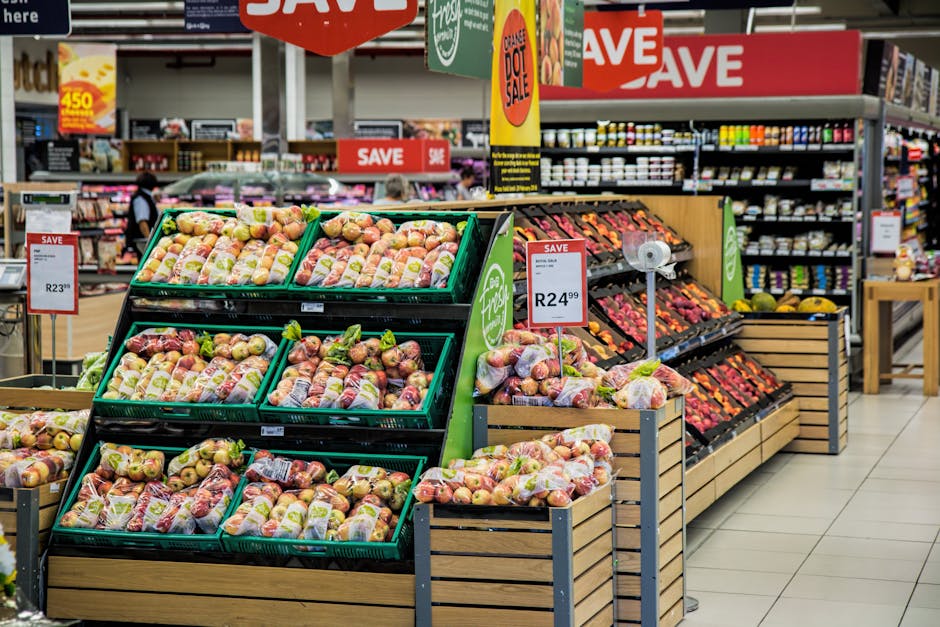Why Should Retailers Embrace Local PPC Strategies?
Why Should Retailers Embrace Local PPC Strategies?
If you want to plant the seeds of success in your retail business, embracing local PPC strategies is like tending to a thriving garden. By cultivating localised keywords and targeting your audience with precision, you can reap the benefits of increased foot traffic and online conversions.
Just as a well-tended garden yields a bountiful harvest, leveraging location targeting and optimising your Google My Business presence will nourish your retail store with growth and prosperity.
Key Takeaways
- Localised keyword research helps retailers understand specific terms and phrases used by local customers, increasing the chances of reaching the right audience.
- Tailoring PPC campaigns to local audience needs and interests results in higher engagement and conversions.
- Ad extensions, such as location extensions and promotion extensions, enhance PPC ads with additional information and encourage engagement from the local audience.
- Utilising local inventory ads and optimising Google My Business profile can improve product visibility, enhance the overall customer experience, and impact online presence and customer acquisition.
Importance of Localised Keywords

You need to prioritise using localised keywords to effectively target local customers in your PPC campaigns.
Localised keyword research is crucial for understanding the specific terms and phrases that local customers are using when searching for products or services. By integrating these localised keywords into your PPC campaigns, you can significantly increase your chances of reaching the right audience at the right time.
Understanding local search trends is essential for developing a successful PPC strategy. Analysing local search trends allows you to identify the most relevant keywords that local customers are using to find businesses like yours. This insight enables you to tailor your PPC campaigns to aline with the specific needs and interests of your local audience, resulting in higher engagement and conversions.
Targeting Local Audience With Ad Extensions

To effectively target your local audience with ad extensions, incorporate location-specific information and promotions into your PPC ads. Ad extensions offer numerous benefits for local audience targeting, allowing you to enhance your ads with additional information and encourage engagement. By utilising ad extensions, you can provide potential customers with relevant details such as your business address, phone number, and links to specific landing pages. This not only makes your ads more informative but also increases the likelihood of driving foot traffic to your physical stores.
Consider the following table showcasing the benefits of incorporating ad extensions in your PPC ads:
| Ad Extension Benefits | Description |
|---|---|
| Location Extensions | Display your business address and make it easier for local customers to find you. |
| Call Extensions | Include a phone number for users to directly call your business, increasing lead generation. |
| Promotion Extensions | Highlight special offers, promotions, or sales specific to your local audience, driving in-store visits. |
| Sitelink Extensions | Direct users to specific pages on your website such as product pages, store locater, or contact us page. |
By leveraging these ad extensions, you can effectively tailor your ads to the local audience, increasing the relevance and impact of your PPC campaigns.
Transitioning into the subsequent section about ‘leveraging location targeting for ad campaigns,’ it is crucial to further explore how you can maximise the potential of location-specific targeting to drive conversions.
Leveraging Location Targeting for Ad Campaigns

After incorporating ad extensions to target your local audience effectively, you can now leverage location targeting for ad campaigns to further enhance the impact of your PPC efforts.
By incorporating location-based ad copy and geo-fencing targeting, you can significantly optimise your ad campaigns to reach potential customers in specific geographic areas. Here’s how to make the most of location targeting:
-
Tailored Messaging: Craft ad copy that resonates with the local audience by including location-specific information such as city landmarks, local events, or regional preferences. This personalisation can greatly increase engagement and conversion rates.
-
Refined Audience Targeting: Use geo-fencing targeting to create virtual perimeters around specific locations, such as your retail store or competitor locations, to deliver ads to potential customers within these boundaries. This precision targeting ensures that your ads are reaching the most relevant audience.
-
Enhanced Ad Relevance: Utilise location targeting to ensure that your ads are displayed to users who are in close proximity to your physical store, increasing the likelihood of driving foot traffic and in-store purchases.
By leveraging location targeting for your ad campaigns, you can maximise the impact of your PPC efforts and drive more relevant traffic to your retail store.
Next, let’s delve into the effectiveness of utilising local inventory ads for retail stores.
Utilising Local Inventory Ads for Retail Stores

To effectively utilise local inventory ads for your retail store, implement a comprehensive inventory management system that synches with your online advertising platforms. By doing so, you can ensure that your local inventory is accurately represented in your ads, providing potential customers with real-time information on product availability. This can significantly enhance the effectiveness of your advertising efforts and drive foot traffic to your physical store.
Localised ad copy is essential for maximising the impact of local inventory ads. Craft compelling ad copy that highlights the availability of specific products in your store, enticing nearby shoppers to visit and make a purchase. Incorporating geo-targeted promotions into your local inventory ads can further boost their effectiveness. Tailor your promotions based on the demographics and purchasing behaviours of local customers, increasing the relevance and appeal of your ads.
Utilising local inventory ads not only improves the visibility of your products but also enhances the overall customer experience. When potential customers can easily find and purchase the items they need from a nearby location, it creates a seamless and convenient shopping experience, ultimately driving sales and fostering customer loyalty.
Optimising Google My Business for Local PPC

When setting up your local PPC strategy, begin by optimising your Google My Business profile to enhance local visibility and engagement. Google My Business optimisation is crucial for local PPC success.
Here are three key steps to ensure that your Google My Business profile is optimised for local PPC trends:
-
Accurate Business Information: Ensure that your business name, address, phone number, and website URL are accurate and up to date. Consistent and accurate information across all platforms enhances your local search visibility and builds trust with potential customers.
-
Compelling Visual Content: Utilise high-quality images and videos to showcase your products, services, and the ambience of your store. Visual content can significantly impact customer engagement and influence their decision-making process.
-
Customer Reviews and Ratings: Encourage satisfied customers to leave positive reviews on your Google My Business profile. Positive reviews not only enhance your local credibility but also contribute to higher visibility in local search results.
Optimising your Google My Business profile is a fundamental aspect of local PPC strategies, and it can significantly impact your online presence and customer acquisition.
Frequently Asked Questions
How Can Retailers Effectively Track the Success of Their Local PPC Strategies?
To effectively track the success of your local PPC strategies, utilise tracking metrics like click-through rates, conversion rates, and return on ad spend. Perform detailed performance analysis to identify what’s working and optimise your campaigns for better results.
What Are Some Common Mistakes Retailers Make When Implementing Local PPC Strategies?
Common mistakes when implementing local PPC strategies include neglecting optimisation techniques, ignoring local search trends, and underestimating the power of geo-targeting. By avoiding these errors, you can enhance your local PPC success.
How Can Retailers Ensure Their Local PPC Strategies Are Compliant With Privacy Regulations?
To ensure privacy compliance and data protection in your local PPC strategies, focus on targeting local audiences, customising ads, and adhering to regulations. Implement geographical targeting, leverage location-based keywords, and review privacy policies regularly.
What Are Some Best Practises for Integrating Local PPC Strategies With Other Marketing Efforts?
To maximise local PPC impact through content marketing, integrate local PPC with social media. Leverage the power of localised ads and targeted social content. This approach can increase reach and engagement, leading to higher conversion rates.
How Can Retailers Adapt Their Local PPC Strategies to Changes in Consumer Behaviour or Local Market Trends?
Adapting to Trends and Localised Targeting are crucial for retailers. Mobile Optimisation and Localised Ad Copy ensure relevancy. Monitor consumer behaviour and local market trends to refine your local PPC strategy for maximum impact.
Conclusion
In conclusion, retailers should embrace local PPC strategies to effectively reach their target audience and drive foot traffic to their stores.
Did you know that 46% of all Google searches are looking for local information? By implementing localised keywords, ad extensions, location targeting, and Google My Business optimisation, retailers can maximise their online presence and attract local customers.
Embracing local PPC strategies is crucial for retail success in today’s digital landscape.
Contact us to discuss our services now!
